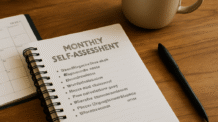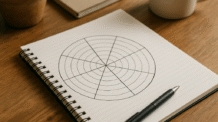
In a fast-paced world where most people feel like they never have enough hours in the day, mastering the art of time organization can feel like unlocking a superpower. The truth is, you don’t need more time — you need to make better use of the time you already have. When you structure your routine strategically, you can accomplish more and still have space for relaxation, hobbies, and personal growth.
This article will guide you through actionable strategies to help you organize your routine effectively and free up valuable time for what really matters.
Understand Where Your Time Is Going
Before making any changes, you need to assess your current routine. Most people underestimate how much time they spend on unproductive activities like mindless scrolling or switching between tasks.
Try a Time Audit
Spend three days logging everything you do from the moment you wake up to the time you go to bed. You can use a notebook, a spreadsheet, or apps like Toggl or Clockify. Once you have a clear picture, identify:
- Tasks that take more time than they should
- Repetitive actions that could be automated
- Time-wasting habits
This is your foundation for building a better routine.
Set Clear Priorities
You don’t need to do more; you need to do what matters. Use the Eisenhower Matrix to separate your tasks into four categories:
- Important and Urgent – Do these immediately
- Important but Not Urgent – Schedule these
- Not Important but Urgent – Delegate or limit
- Not Important and Not Urgent – Eliminate
When you know what truly deserves your attention, it’s easier to say no to what doesn’t.
Design Your Ideal Day
Now that you know how you currently spend your time and what your priorities are, design a daily structure that works for you.
Break the Day into Blocks
Instead of jumping from task to task, divide your day into focus blocks. For example:
- Morning Block (8 AM – 11 AM): Deep work, high-energy tasks
- Midday Block (11 AM – 2 PM): Meetings or collaborative work
- Afternoon Block (2 PM – 5 PM): Admin tasks or lighter duties
- Evening Block (5 PM – 8 PM): Personal time, learning, or exercise
Consistency builds rhythm, and rhythm builds momentum.
Plan the Night Before
Start every day already knowing what needs to be done. Before going to bed, take 10 minutes to:
- Review your schedule
- Set 1–3 top priorities for the next day
- Prepare anything you need in advance (clothes, lunch, documents)
This small habit clears mental space and improves morning efficiency.
Use Technology Wisely
There are countless apps designed to help with routine management. The key is to use them as tools — not distractions.
Useful Tools to Try:
- Google Calendar – For scheduling and reminders
- Trello or Notion – For organizing tasks and projects
- Forest or Focus To-Do – For focused work sessions
- Habitica or Loop – For building and tracking new habits
Avoid overcomplicating things. Choose tools that fit your lifestyle.
Batch Similar Tasks
Multitasking leads to more mistakes and lower performance. Instead, group similar tasks and do them in a focused batch.
- Answer all emails at once
- Handle errands in a single trip
- Make phone calls back-to-back
Batched work helps your brain stay in one mode and increases efficiency.
Automate or Eliminate
Look at your routine and ask:
- Can this be automated?
- Can this be delegated?
- Does this even need to be done?
Examples of automation include:
- Setting automatic bill payments
- Using recurring reminders for habits
- Creating email filters and canned responses
Simplifying your life isn’t laziness — it’s strategy.
Schedule Free Time Intentionally
Ironically, the key to having more free time is to schedule it. If you wait until everything is done, you’ll never rest. Instead:
- Block out 30–60 minutes daily for personal time
- Designate one day a week for no work
- Plan regular social time and hobbies
Your brain needs rest to stay creative, focused, and resilient.
Be Flexible but Consistent
No routine survives contact with real life 100% of the time. Things will come up. Be flexible enough to adapt but committed enough to return to your routine quickly.
Treat your schedule like a GPS — if you take a detour, it will still guide you back to the path.



Deixe um comentário